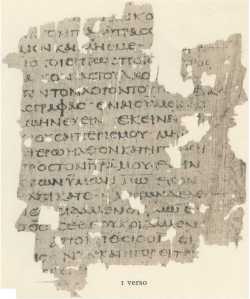Glad everyone had a fun weekend. Time to get serious.

On Friday, President Obama addressed the assembled solons of Planned Parenthood–which, we are now apparently supposed to believe, counts as a diversified women’s-health organization, similar in many ways to Carillion Hospital or the Missionaries of Charity. Forget that Planned Parenthood was founded in order to foster, was named after, and everyone thinks of as associated with: artificial contraception and abortion.
Anyhoo: the President castigated us* for “trying to bring back the 1950’s.”
So many ironies here that I am not sure my free blogging plan offers me enough gigabytes on the WordPress server for me to address them all. (SIDEBAR: When I finally get around to writing my memoirs, the title will be “The Man They Accused of Trying to Bring Back the 1950’s.”)
Okay:
1. According to the President: reasonable, sober, respectful people recognize that Roe v. Wade settled this whole business a long time ago. Who do we think we are, questioning the Supreme Court of the United States of America? That’s like trying to go back the fifties.
But wait. Wasn’t it in 1963 that Dr. Martin Luther King, Jr., wrote: a law that contradicts justice is no law at all? Of course, he cited authorities going back to the ’50’s–as in the zero zero fifties: the first Christians.

2. Now, back in the fifties (whichever fifties we mean), there were no sonograms. And our understanding of DNA was much more rudimentary than it is now. So it might have been possible for a reasonable scientist to try to identify some point in the development of the embryo/fetus/baby as “the moment” when human life began.
In fact, at the time of Roe v. Wade–back before: the internet was invented, cds were invented, or even the Apple II+ was invented; back before many of us were even conceived or born–way back then, some people tried to make the case that we could identify a point in the development of the child when he/she went from “a blob of cells”/”tissue” to “a person.”
But now we know more. We have more advanced techniques. We have deeper knowledge of these matters than anyone had back in the benighted days of the Ford Pinto, when Roe v. Wade was handed down. Today there is no neonatologist on earth who would say: ‘Yes, in my scientific opinion, this is the moment when human life begins (other than at conception).’
 If there were such a moment, things would be a lot more convenient for Planned Parenthood, for the Supreme Court, and for Rachel Maddow & Co. If such a moment existed, it would no doubt be emblazoned on plenty of coffee mugs and t-shirts which you could order from Playboy.com. But no such moment exists.
If there were such a moment, things would be a lot more convenient for Planned Parenthood, for the Supreme Court, and for Rachel Maddow & Co. If such a moment existed, it would no doubt be emblazoned on plenty of coffee mugs and t-shirts which you could order from Playboy.com. But no such moment exists.
So, who is stuck in the 50’s–or the 70’s? Mr. President, with all due respect for your advanced age, we don’t want to go back to the scientific ignorance of a generation ago! We want today’s knowledge and insights!
3. My impression is this: “Going back the 1950’s” means: going back to the time when a woman had to be ashamed of getting pregnant because of an act of sexual intercourse that she did not want to make–or could not look forward to as–a permanent aspect of her life. The idea is: Abortion on demand has freed women of this painful shame.
But who really deals in shame? Does the Pro-Life movement deal in shame? We are the ones who say: Look, there is nothing shameful about being pregnant. Being pregnant is good; being pregnant involves a beautiful baby! No problem here. Maybe there is something shameful about the way you got pregnant, but that really is between you and God and your pastor. That really is private. What isn’t private is the verifiable scientific fact that you are nourishing a new life in your womb, and God wills that the child have life and have it in abundance. We love you and we’re on your side. Nothing to be ashamed of, as far as having a baby in your womb goes. Together, let’s give this baby a good start in life!
Whereas Planned Parenthood says, for all intents and purposes: Look here, your pregnancy needs to be expunged from the face of the earth! The fact that you have a baby is a damned shame. What you did is so bad that the only answer is the homicide of this shameful child in your womb. We “love” you so much that we will make it all better for you by killing your child, your own flesh and blood. And if you feel bad about it, that’s only because the people who are trying to take the world back the ’50’s are laying a guilt trip on you. If you feel guilty about killing your baby, you really ought to be ashamed of that, too.
Which path offers the hope of liberation from shame? Seems pretty clear which one does.
Mr. President, you know what: You suck. Why don’t you take your blinders off, come out of the Neanderthal cave of falsehood, oppressive moral rigidity, and violence that Planned Parenthood has built (on the back of an original platform of white supremacy), and try to get a grip on reality? Love, Father Mark White
__________________
* “us” Catholics, Pro-Lifers, decent human beings who can read a sonogram
 1.
1.  Did the Lord ask a rhetorical question? “Would I have told you that I am going to prepare a place for you?”
Did the Lord ask a rhetorical question? “Would I have told you that I am going to prepare a place for you?” once wrote a weird little weblog about walking around New York City.*
once wrote a weird little weblog about walking around New York City.*
 We have a task, the New Evangelization. Let’s focus on the crucial dimension of trust.
We have a task, the New Evangelization. Let’s focus on the crucial dimension of trust.




 The fact is, though: the world is literally full of dead people. In every city or town there are numerous fields full of people’s moldering bones.
The fact is, though: the world is literally full of dead people. In every city or town there are numerous fields full of people’s moldering bones.